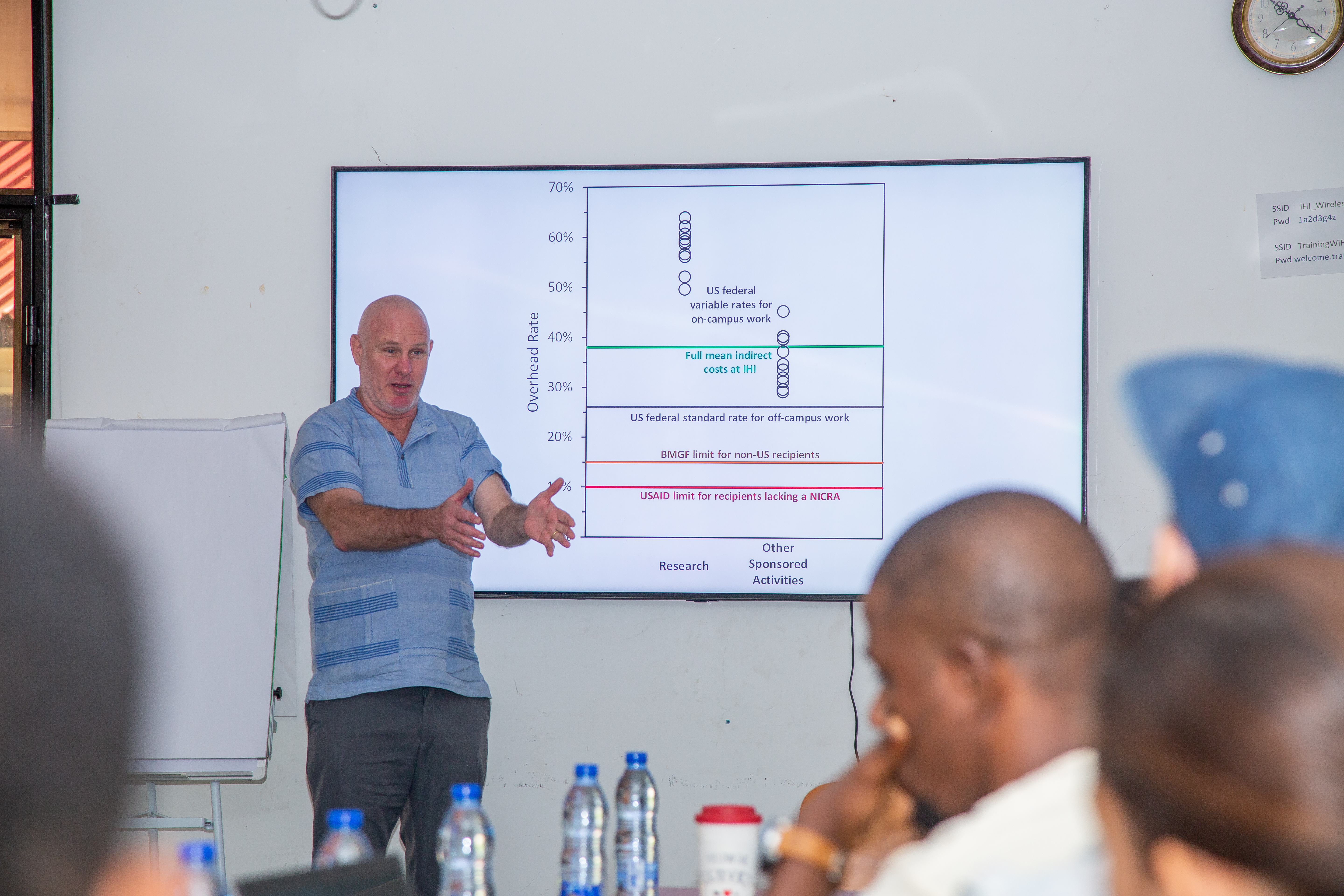
TALK: Promoting successful, independent African scientists at genuinely African institutions

Ifakara Health Institute’s seasoned researcher, Prof. Gerard Killeen aka “Ger” or “Gerry”, facilitated a participatory discussion highlighting how best the success and independence of African scientists at truly African institutions can be promoted.
Gerry gave a three-hour talk at the Ifakara Health Institute’s Training Center based at Kingani area on the outskirts of Tanzania’s former colonial capital of Bagamoyo. Attendance is both physical and virtual.
“Prof. Killeen will take us through three hours of interactive sessions titled "Promoting the success and independence of African scientists at genuinely African institutions,” informed Dr. Mgeni Mohamed – a member of the talk organizing team.
“Those who attended the Ifakara Annual Scientific Conference (in August) 2023 may still remember Prof. Killeen's talk titled "On the subtle art of herding cats: Cultivating cadres of expert leaders who are individually independent but nevertheless collaborate and learn together as effective teams. Now, Prof. Killeen would like to lead an interactive and participatory version of the talk.
About Gerry
Prof. Killeen is an ecologist and epidemiologist who has spent over 18 years living in east Africa, working on the behavioural ecology of mosquitoes and biologically rational approaches to more effective control of vector borne parasites like malaria and lymphatic filariasis, as well as arboviruses like Dengue, Zika and Chikungunya.
Gerry’s previous work on malaria vectors has helped shape global policies on coverage targets and target product profiles for insecticide treated nets and established implementation models for larval source management with environmentally friendly biological insecticides.
Gerry’s work on the host preferences and feeding behaviours of malaria vector mosquitoes has influenced ongoing global research investment priorities and his recent move to the University Colleage Cork in Ireland through an AXA Research Chair Award extends that work to examine how community-based wildlife conservation creates both obstacles and opportunities for enhanced malaria vector control in Africa.
Jane Machange, a young scientist from Ifakara, appreciated the discussion, emphasizing the workshop's educational value. She highlighted the importance of understanding the “behind the scenes” of the successes of seasoned scientists. Jane stressed the significance of a supportive system that shares the same values, citing its role in propelling individuals forward in their scientific journey.
Professor Gerard Killeen took the stage, emphasizing the imperative of empowering African scientists to achieve greatness and independence. Shedding light on the challenges inherent in navigating a funding and institutional landscape more demanding than global averages, Professor Killeen aims to provide assistance by offering reassurance, validating experiences, and sharing solutions developed over the years.
Dr. Mohamed, a seasoned scientist himself, drew parallels between the recent workshop and past mentoring initiatives that took place during the Ifakara Annual Scientific Conference 2023 held in August. This conference provided a platform for young and senior scientists to convene, share their work, and exchange experiences.
The central theme of the workshop, as highlighted by Dr. Mgeni, focused on fostering connections between young and senior scientists to collectively enhance the institute's growth. The initiative aimed to benefit scientists at all career stages, with a particular emphasis on providing juniors insights on strategically positioning themselves for growth opportunities.
Looking ahead, the organizers plan to conduct regular training sessions, potentially every four months, focusing on soft skills such as communication. Dr. Mohammed emphasized the importance of these sessions, recognizing the value of shared experiential learning. As he aptly put it, "These things we cannot learn from books, we learn from each other."
This commitment to continuous learning and collaboration stands as a testament to Ifakara's dedication to nurturing scientific excellence within its community.
